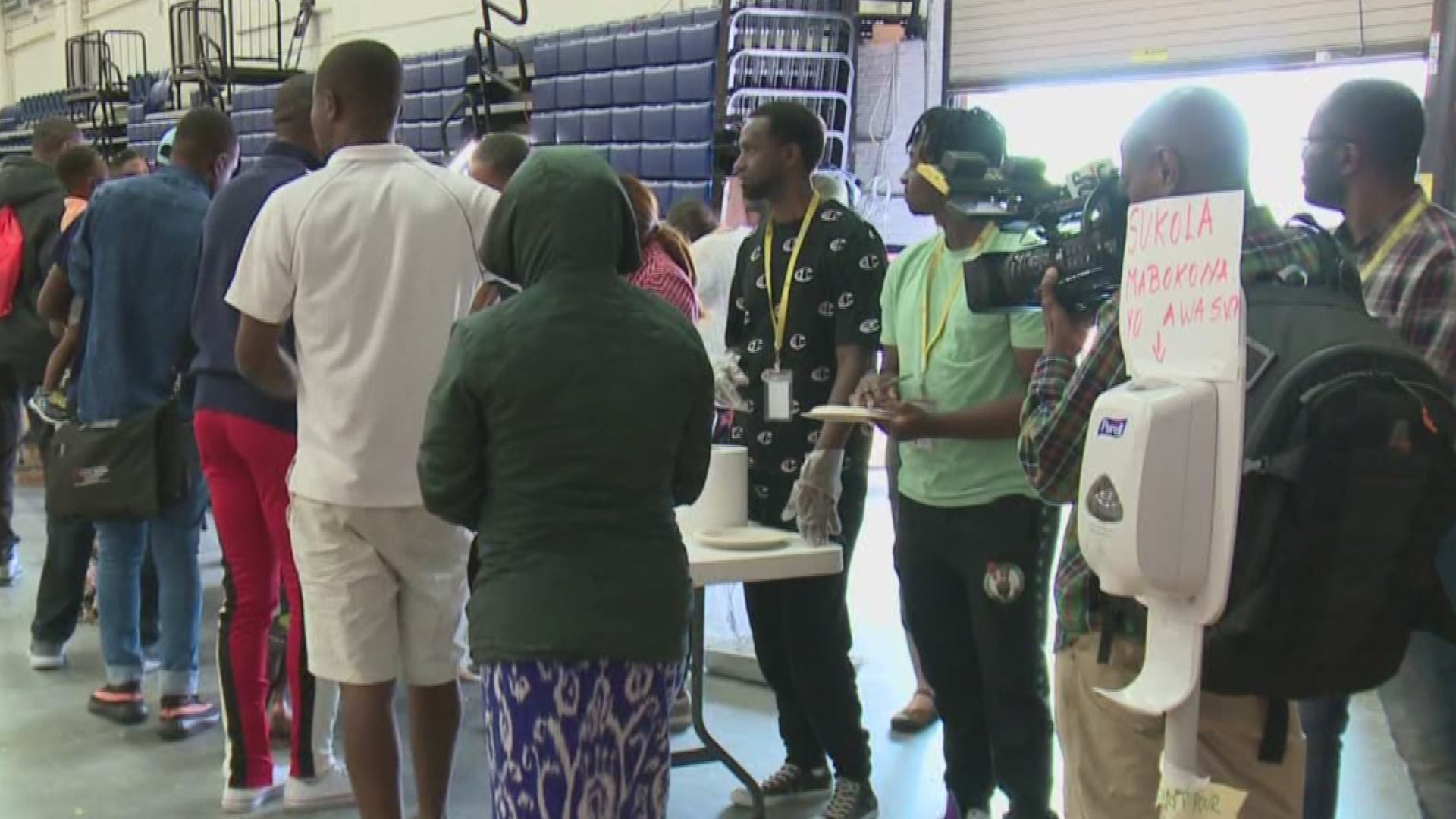PORTLAND, Maine — It's been one month since the new wave of asylum seekers began to arrive in Portland; to this day, more than 300 people have been processed through the city.
While we continue to wait for figures on the total cost to the city, we're learning more about where the city is at with temporary housing for families since everyone must be out of the makeshift shelter at the Portland Expo by mid-August.
"We need to find temporary and permanent housing for our new neighbors," said Kristina Egan, executive director of the Greater Portland Council of Governments, the organization tasked last month with finding housing for asylum seekers.
She says her agency is teaming up with other city leaders in the area to find affordable and long-term housing for families seeking asylum through their new "Host Homes" program.
So far the response has been overwhelmingly positive with more than 60 people inquiring about helping.
"We're hoping that we can use the energy that's coming in from our community now and translate it into long-term solutions, so we can make sure we have housing for everyone in the region," Egan said.
Egan says their goal is to initially work with faith-based groups and then partner with local families in the area looking to provide shelter for families seeking asylum.
"The faith communities have been working on this for years," Egan said. "They have an established network of finding host families and being able to quickly place asylum seeker families."
With the deadline to get asylum seekers out of the Portland Expo quickly approaching, Egan and others are confident they will be able to find a solution -- they say it's just going to take a little more time.
"The issue here is that the region is already suffering from a lack of housing," Egan said. "So when you layer on top a bunch of new families that need housing, you're layering it onto an existing crisis."
Egan says the organization is still taking applications from families looking to assist. The goal is to place these asylum seekers with host families who live near public transportation.

